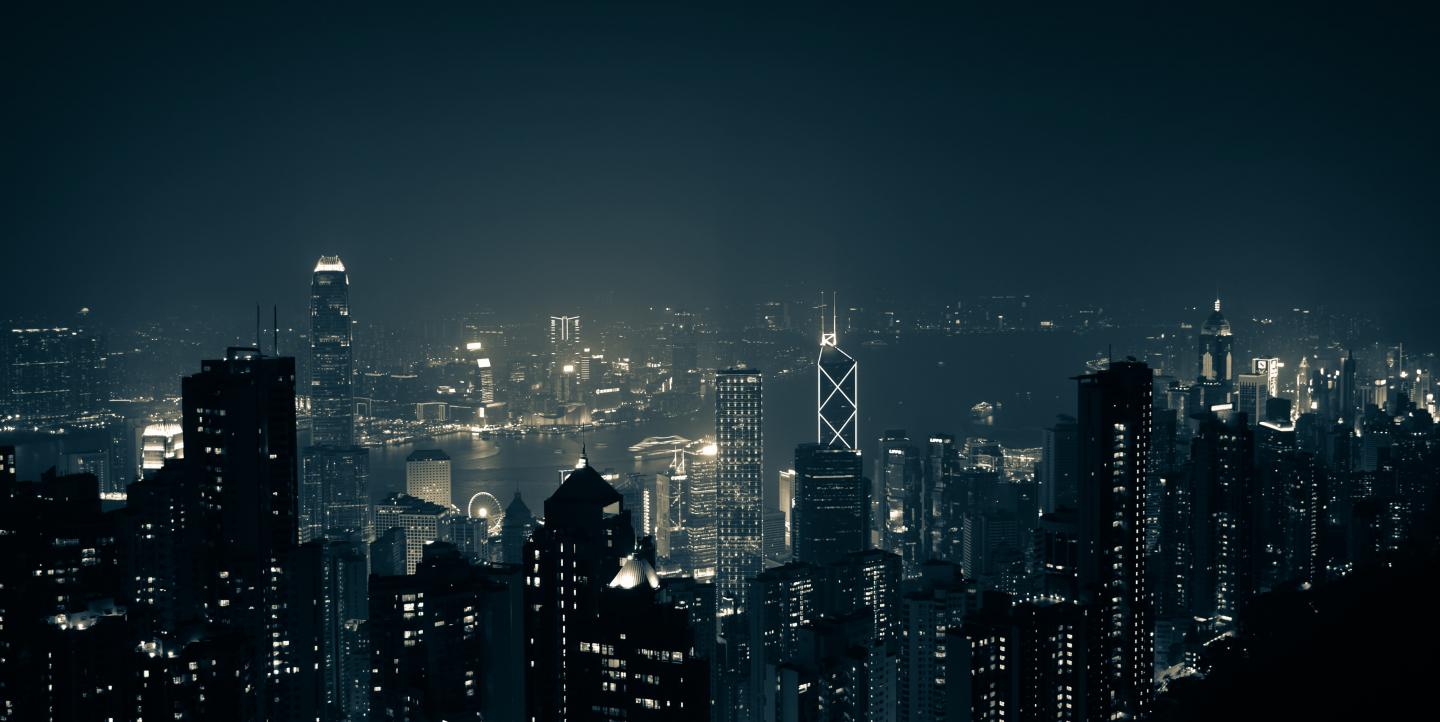Once a haven for free speech in Asia, the situation in Hong Kong has become precarious for anyone who dares to question Chinese rule.
Between 2002 and 2020, Hong Kong fell from the 18th to the 80th place on the Reporters Without Borders (RSF) press freedom index. This downward slide is not about to stop: in recent months, 12 journalists have been charged under the new National Security Law, imposed on the city by Beijing. "I'd be very surprised if Hong Kong's ranking doesn't drop in 2022," said Cedric Alviani, director of the East Asia Bureau of RSF.
Since the anti-extradition law protests that hit the former British colony in 2019, Beijing has been trying to tighten its grip on media critical of the central state, deemed responsible for the rebellion.
Recalling the events of that summer, freelance journalist Wong*, whose name has been changed to protect identity, said: "We were often targeted by the police. I already thought the situation was serious for journalists."
[Read more: Attacks on Maria Ressa and Rappler are an omen for global press freedom]
Press freedom is waning
"But when the National Security Act came along, things changed dramatically," continued Wong. "For example, it's now more difficult for us to reach our sources."
Effective since July 1, 2020, the new legislation criminalizes those who commit "collusion with foreign forces" or "subversion against the Chinese government" — terms vague enough that the "red line" between what is and is not risky to criticize remains unclear. "You never know if what you write about Hong Kong will be considered sensitive or outlawed," said Wong.
An era came to an end in June 2021, when the famous pro-democracy media Apple Daily was forced to close down. For a year, its editorial staff and management had been the target of arrests and convictions by local authorities — a manhunt that continues despite the outlet now shut down and its financial assets frozen.
"All Apple Daily journalists are afraid. Hong Kong authorities are using harassment and legal proceedings to scare journalists,” said Cédric Alviani, director of the RSF East Asia bureau. "Apple Daily has been a target of the Chinese government for a long time. As long as the newspaper existed, there was still hope for press freedom in Hong Kong.”
The Hong Kong authorities, citing reasons related to the National Security Law, or using other means, are putting more and more visible pressure on local media. Yet, many journalists and media outlets are holding on. "I can't say that [press freedom in] Hong Kong has totally collapsed," said Ronson Chan, the new president of the Hong Kong Journalists' Association. "We still have a little bit of freedom — a freedom limited by the National Security Law — which is a difficult legal environment."
As the editor of the independent online media outlet Stand News, Chan said he is being more thoughtful before publishing to ensure his safety and that of his colleagues. "We have to be careful about the words we use, and the words used by the interviewees. Some issues, like Hong Kong's independence, are very controversial."
[Read more: Key quotes: At a critical time, reporters persist despite threats to press freedom]
Journalists are fleeing the city
Others have elected to leave Hong Kong. The local branch of the New York Times, for instance, relocated to Seoul after the national security law was enacted. A year later, local independent media outlet The Initium announced its departure from Hong Kong to Singapore.
"It's just unbelievable. I remember doing a story on the difficulties of operating there as a media outlet,” said Steve Vines, who just returned home after 35 years in Hong Kong. "Just the idea that Singapore is more open to independent media than Hong Kong shows how much the situation has changed."
The British journalist remembers his early days as a correspondent in Southeast Asia. "It was very comforting to return to Hong Kong after a stint in Malaysia or Singapore, where journalists were considered to be at risk."
Chan also noted how journalists have left Hong Kong for Taiwan or the U.K. "I tried to persuade a lot of people to join our association, it's been more difficult than in previous years," he said. "I can only say that I respect their decision."
"I don't feel safe covering Hong Kong," said Wong, who has also now decided to pursue a career abroad. "It's not just about me, I'm also putting my family and friends at risk."
This article was originally published by our French site. It was translated to English by Sedera Ranaivoarinosy.
Photo by Sergio Capuzzimati on Unsplash.


